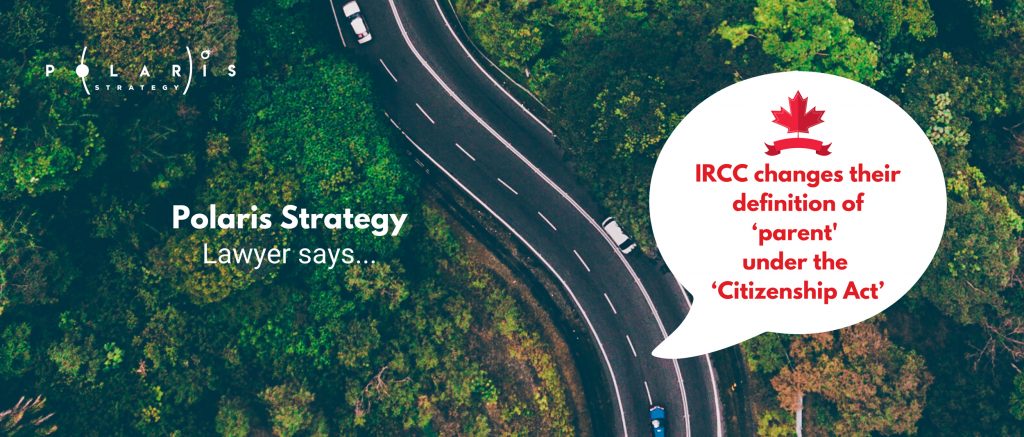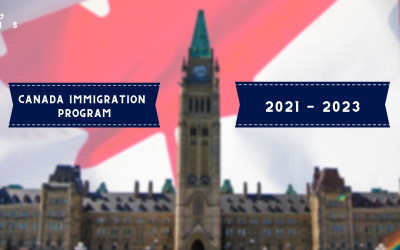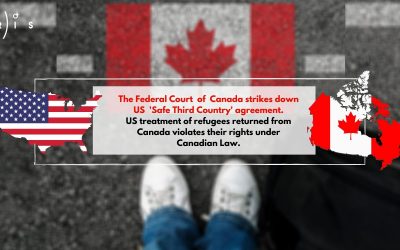IRCC changing their definition of ‘parent’ under the ‘Citizenship Act’

Today IRCC announced a change to its interpretation of the work ‘Parent’ as it is used in the Citizenship Act. The Citizenship Act provides that a person is entitled to Canadian citizenship, no matter where in the world they were born if they have a Canadian parent.
What does it mean to have a Canadian parent?
- In the past IRCC understood a Canadian parent to be a biological parent of the child.
- In other words, if one of the child’s biological parents was a Canadian citizen the child would be entitled to Canadian citizenship.
- This entitlement would exist no matter where in the world the child was born and would exist for the child whether they ever actually claimed that citizenship or not.
What was the change?
- IRCC will now interpret having a Canadian parent as having a legal parent at birth who is a Canadian citizen – even if the legal parent at birth is not biologically related to the child.
- This means that Canadian legal parents will no longer need to sponsor children in this situation for Canadian Permanent Residence.
What is the difference between sponsoring your child, and the new rule?
Under the old system, non-biological parents would have needed to sponsor their child, rather than have them considered a citizen from birth.
- Sponsorship is a lengthier process – the child may have to wait longer for status.
- The sponsor must be present in Canada – if they are living outside of the country sponsorship would not be possible
- A sponsor might be disqualified for some other reason (not having anything to do with the child)
- Sponsorship results in the child obtaining permanent residency – they would need to apply for citizenship later
With the new change, a Canadian with a Canadian legal parent at birth would be entitled to citizenship.
- No sponsorship is necessary
- The child is a citizen no matter where they or their parents are living
- The child does not require a sponsoring parent, so the parent’s situation cannot affect the child’s status
- The entitlement to citizenship is life long, a child must be sponsored as a dependant, but a citizen can claim their citizenship as an adult – even if they never have before
- The child is a citizen, there is no period of permanent residency involved and no second application.
Who will be most affected by this change?
This change will be most significant for people who are considered to be the parents of their children at the time the child is born, but who are not biologically related to them.
This change will not affect adoptive parents since children are adopted after they are born, and it will not affect biological parents since they were already considered parents under the Citizenship Act.
The most common circumstances in which a non-biological parent would be legally a parent when the child is born is in situations of surrogacy, or other assisted reproductive techniques.
- Same-sex parents and their children will benefit from this change since only one (at most) of the two parents can be biologically related to the child. Under the new policy, both of the parents will be considered parents for the purpose of determining the child’s citizenship.
- Couples who have used a surrogate or other form of assisted reproduction in which one or both of the parents are not biologically related to the child will also benefit, as they will now be considered a parent for the purpose of determining the child’s citizenship.
Recent Posts
- Canada Releases 2021-2023 Immigration levels plan
- Team Polaris scores a big win for Ontario Immigration Nominee Program (OINP) Client!
- OINP announces its intention to enact regulatory amendments for Employer Job Offer Stream
- Another win for Team Polaris: Successful Self-Employment Case of a Football Coach from China
- Know all about the revised Canadian Work and Study Visa Permit rules under COVID-19






